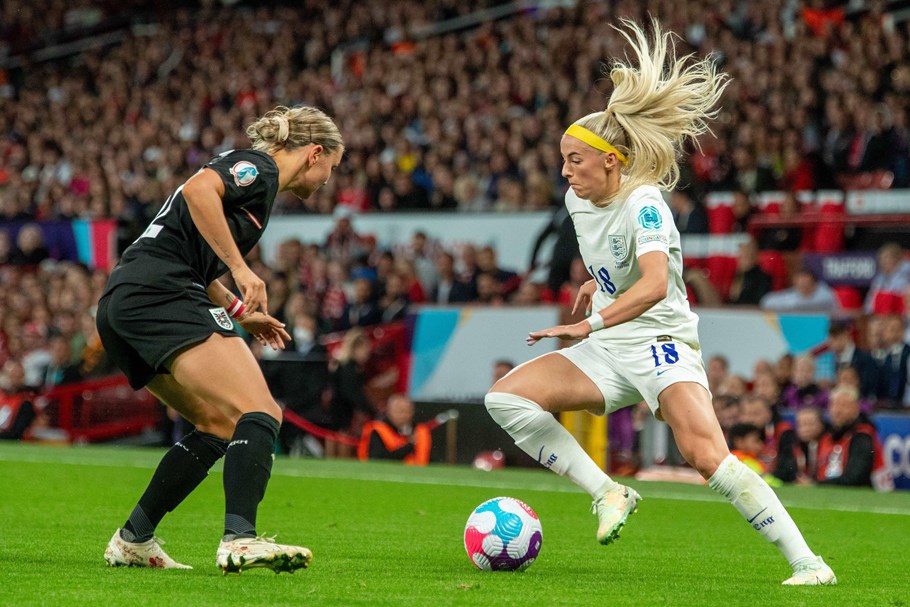A year ago, almost to the day, we wrote an article entitled ‘Whatever happens on Sunday, England have already won’, after the men’s side soared through against Denmark (we won’t dwell on that any longer). The knee-taking, rainbow-wearing youngsters grasped a nation far beyond the 90 minutes on the pitch, and that was the residing feeling for many, regardless of the grand finale.
But if that was the case in the men’s Euro’s, last summer, surely the same logic applies, and is in fact amplified, in the women’s game. Yes, the 90,000 fans in a sold-out Wembley Stadium, and the millions expected to tune in from home, will only have one thing on their minds. An England side lifting a trophy for the first time since 1966 would be a beautifully scripted and emphatically defiant tale from a team who were barely in fruition, with no women’s FA, when the country last won a competition.
Setting us on the way with her sixth of the tournament.
— Lionesses (@Lionesses) July 27, 2022
👏 @bmeado9
But the prevailing legacy of the tournament was always going to be, rightly or wrongly, its long-term impact on the women’s game. While the sport has grown exponentially since the turn of the millennium, it would be naive to say it’s anywhere near where it should be, or where the men’s game finds itself, in terms of commercial revenue, as well as fan and media interest.
Sky Sports’ takeover of the Women’s Super League (WSL) last summer was a huge step in the right direction, but the irresistible lure of a major tournament on home soil always had the potential to break barriers, or glass ceilings, in a way that a domestic tournament competing with the omnipotent Premier League could only ever dream of.
There was immense pressure on this tournament, the England players in particular, to perform for that exact reason. Yet somehow, it managed to surpass the highest of expectations. Smashing the highest attendance figure of all time, 240,055, in only the group stages, and the highest attended single match in England’s opening against Austria at Old Trafford, it’s drawn in more fans and attracted more media coverage than any women’s footballing event in history.

The audience viewers for England’s semi-final peaked at 9.3 million and the final on Sunday is estimated to be the most watched TV broadcast of the year. FIFA have even announced, during the competition, that they will introduce women’s players for the first time next season.
But it is perhaps the intangible, the embracing of strangers in pubs on a Tuesday night, the bedtime scrolling through individual players and their pasts, which is the most telling, and will have the most long-lasting impact.
This national buzz, this feeling of zeitgeist, is revolutionary – sadly, unprecedented – and this is how the tournament has carved its mark into the misogynistic minds of many. This is what players, coaches and the community should be overwhelmingly proud of. The standard of football has been superb, and a monumental battle, with either Germany or France, awaits us, but I struggle to see a better takeaway than an irrevocable change in perception of women’s football.
It is long overdue, and of course, there is still a great deal of work that needs to be done; as with any fight for equality, it is weakened by the mind-set that a particular point marks a definitive end.
For now, however, there is no harm in relishing in the moment, and seeing how far football has come. In 1921, women were banned from playing the sport altogether. 100 years on, we’re hosting the Euros, and have glided through to its final with immeasurable style and poise.
They are, formerly unsung, national heroes, regardless of what happens on Sunday. Although a win wouldn’t go amiss.

















